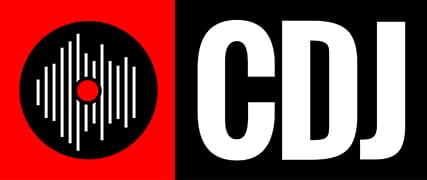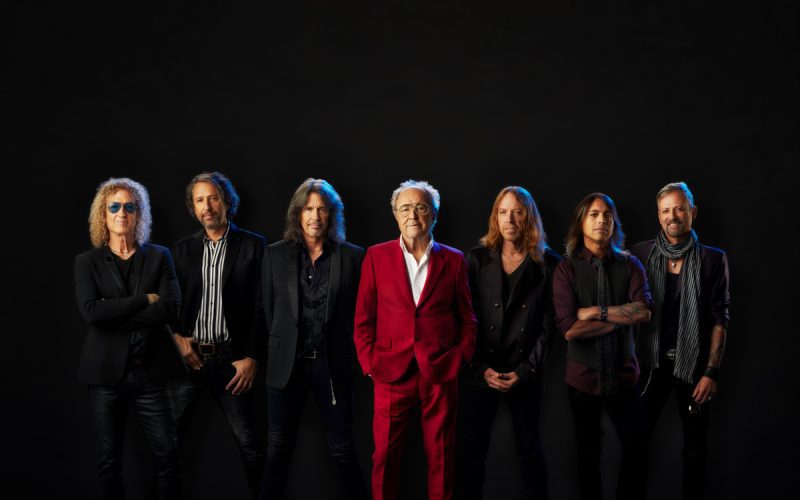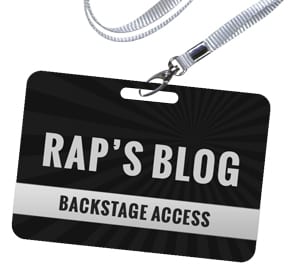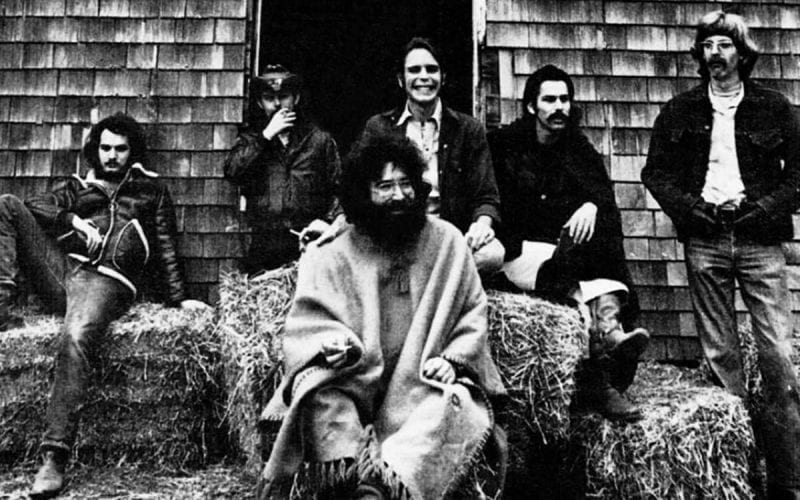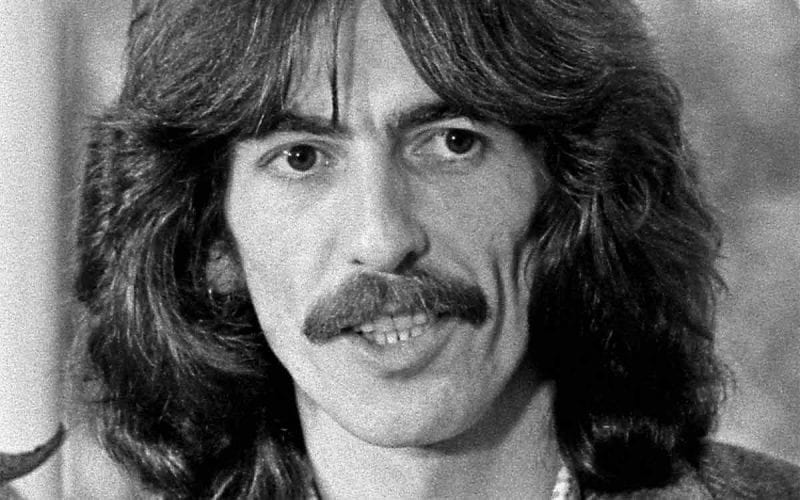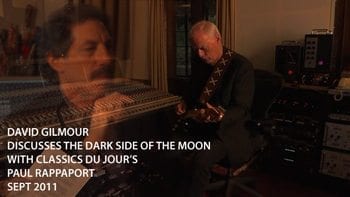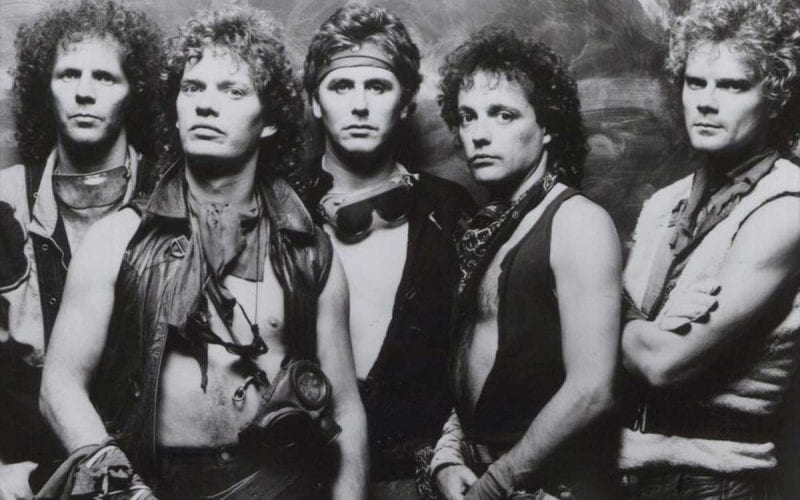
Excited to see concert dates being booked again starting this summer, I happened upon some Loverboy dates. I had the pleasure of playing a major role in their career and seeing their name sparked a lot of memories.
It occurred to me that many of you who appreciate my writings (PS. Thank you very much), probably don’t know the inner workings of a record company, its relationship with a band and management, and all of the serendipity that can take place in the building of an artist’s career. The story of Loverboy is a classic and I thought you’d enjoy it.
Of course, it takes place in the early 80’s when rock radio was at its height, still playing lots of new music and the biggest tool we had to turn the public onto our upcoming artists. At that time, I was head of album rock promotion for Columbia Records.
One of the misnomers about the music business is, that the record companies choose which acts will get pushed the hardest, while some fall to the wayside. Although there are initial choices in the beginning based on our gut feel, all the artists get their fair share of promotion. At least they did at Columbia. And based on how the public reacts, that’s how we know who really has the potential for a career, and for whom our efforts should be increased. It wasn’t our job so much to pick the hits as it was to “read the tea leaves,” as we used to say, to uncover like a detective what the public wants to hear. I watched us spend millions of dollars on artists we believed in that just didn’t resonate with the public and sometimes we’d promote something we weren’t quite sure of, only to be pleasantly surprised at the public’s desire for the music.
This is the true story of how the band Loverboy became famous and ultimately one of the biggest rock acts of the 80’s. The fact that they still tour today is a testament to their talent.
__________________
Mason Munoz, son of legendary WNEW-FM kingpin disc jockey Scott Muni, was a key product marketing manager at Columbia Records. One day he excitedly ran into my office holding a new album in his hands. “Rap, wait ‘till you hear this! It’s a new band out of Canada and they’re gonna go all the way!”
I took the advance LP, which was in a white paper sleeve, and later that day I began listening. Honestly, this was one of those projects I just didn’t hear right away. As good as that first record is, it just didn’t sink in for some reason. To make matters more difficult the record was being released in October, which is when everything starts to shut down. Traditionally in the fall, no one is looking to play any new music, it’s all hits or Christmas songs. And in those days the record stores just wanted to stock up on all the big hit albums they’d be selling during the Christmas season—there’d be little room left for any new music on their shelves. I thought to myself, ‘Let me get this straight, I have a rock band named “Loverboy,” the album cover features a skinny teenager that looks androgynous, and it’s coming out in October?!’
Being a professional promotion person means that every record gets a real shot. Whether you “hear it” or not personally doesn’t matter. It’s your job to obtain as much airplay as possible to see if the public wants to know about it. I told Mason, that for some reason the record just didn’t resonate with me, but assured him I’d promote the hell out of it to find out if, indeed, we had something. I placed large four-color advertising images for the album in all the major trade magazines to make a big splash, especially because it was late in the year and I really wanted people to pay attention. We shipped the album to the rock format.
No more than two weeks later I got a call from Gloria Johnson who was the evening disc jockey at KGON-FM in Portland, Oregon. Gloria was one of those special people who had exceptional ears for rock music. In fact, Gloria was so good at identifying new potential rock acts, I’d say she was to rock music on-air talent what the legendary John Hammond was to Columbia Records’ A&R department — yes, that good. Gloria was a rocker at heart, a wonderful gal, and when she talked, I listened.
“Hey Rap, how ya doin’? I’m calling to tell ya that you have a big hit on your hands!”
“Really? Who??”
“Loverboy!”
“Loverboy?????”
“Yeah, I’m playing a track called “Turn Me Loose” and the phones are ringing off the hook!”
That’s all I needed to hear. The tea leaves had spoken. Time to turn up the heat. I ran down the hall yelling for Mason.
“I told you so, Rap.”
“Yeah, yeah, Mase, I don’t hear ‘em all right away. Sometimes it takes me a second. Doesn’t matter, we’re gonna nail this puppy to the wall.”
Our great local promotion team started to spread the word as fast as they could — we had a record that when played was getting huge requests from rock fans. My partner on the west coast, Jim McKeon and I were calling all our close contacts at rock radio and we also had independent promotion people on the project as well. The heat was on!
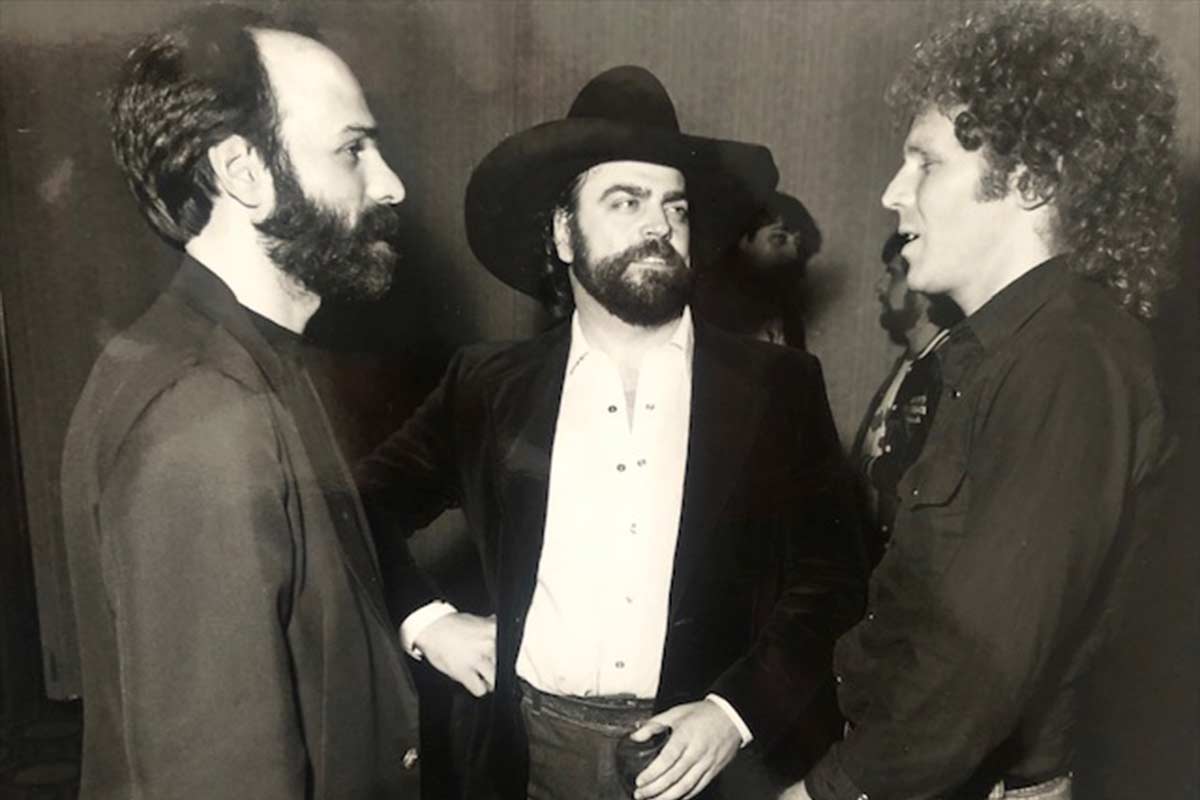
“Turn Me Loose” was quickly gaining airplay across the country and started to rise in the rock song airplay charts. It was time for me to call and introduce myself to their manager, Bruce Allen, in Vancouver. I had good news, he and his band were about to have a big hit record. I would come to learn that Bruce Allen was one big, tough Canadian, very outspoken, and a force to be reckoned with. He’d been Bachman-Turner Overdrive’s manager, and after Loverboy would go on to steer the careers of Bryan Adams and Michael Buble amongst others.
In a chirpy voice, his secretary announced, “Bruce Allen Talent.” I told her who I was and why I was calling and she put me on hold which seemed to last an eternity. Finally, Bruce picked up the phone huffing and puffing like he was really out of breath. I tried to make a joke.
“Big office, huh?”
“Whaddya mean?” He said forcefully, in his thick Canadian accent.
“I mean your office must be really big, you got winded running from one end to the other.”
“Naw, naw, nothing like that. I just had a fight with my accountant.”
“Lots of yelling and screaming, huh?”
“No, a fight.”
“Like a fist fight??”
“Yah, a real rough and tumble!”
“Shit, Bruce, I haven’t hit anyone since the seventh grade!”
I would also later learn that Bruce had a large painting of the professional boxer, Chuck Wepner hanging over his desk for inspiration. Wepner’s nickname was the Bayonne Bleeder — no matter how battered he got during a fight, he would always get up off the mat and keep coming like a mad dog. That kind of fight is part of Allen’s larger than life personality.
“So, you like my guys’ record eh?”
“Better than like it, I’m on my way to making it a big hit at album rock radio!”
Bruce and I hit it off immediately, appreciating each other’s go-getter attitude.
Due to a lot of hard work, especially by one of our famed local guys, Gene Denonovich in St. Louis, the big rock station there, KSHE-FM, was playing Loverboy so much the band was really becoming known in the city.
With St. Louis warming up to the band, I called Rick Balis, the program director for KSHE to thank him for all the support and ask if he’d like the band to come and play a free show for the station and his listeners. He was thrilled and I called Allen who made it happen. I thought Rick would book a big club or small theater, but he decided to throw the concert at Kiel Auditorium — the place held over 9,000 people!
A few of us flew in for the concert, and some very special things happened that evening. It was the first time we saw the band perform live. We knew they had written some catchy tunes but we weren’t ready for how good they were. These guys had real talent and they were going to go far. There was the charismatic Mike Reno on vocals and Paul Dean on guitar, but the secret sauce was the rhythm section, Scott Smith on bass and Matt Frenette on drums. These guys were the engine that drove the band. Round it all out with Doug Johnson on keyboards and you had something much more special than just another pop group.
The other enlightening event was how many girls were in the audience. We all thought we were launching a guy rock band, a la AC/DC, but with half the audience comprised of screaming girls, our eyes popped. When you have a band that appeals equally to both men and women you start to envision millions and millions of records sold.
I went to use the bathroom before the show began and a kid who’d had one too many beers sauntered up to the stall next to me. He was pretty bombed and as he was peeing (thankfully in a straight direction) his head started weaving in a circular motion. He closed his eyes and started singing, “Turn me loose, turn me loose.” I was amazed. Here it was, the whole record business in a nutshell. From the band making the record, to the excited Mason Munoz, to me and my promotion team, to Gloria Johnson leading the way, to the music being played on KSHE and now, the music was in this kid’s head!
Rick had successfully packed Kiel Auditorium, over 9,000 kids were in the audience. The band gave an over-the-top performance and blew the place to pieces. We were on the verge of breaking what would become one of the biggest bands of the ‘80’s.
We met the guys after the show. They were good people – no outsized egos, no demands, just very thrilled to be there working on building a career. I flew back to New York and called a meeting with Mason and Hope Antman, the head of Columbia publicity.
“These guys are really great, but I have no image to work with. Only the album cover which doesn’t convey a band. I need a photo that when seen, everyone will know it’s Loverboy.”
Hope understood and immediately put together a photo shoot. It couldn’t have been more than two weeks and she walked into my office and threw down a photo that was to become their first big publicity shot. In the middle of some really rockin’ tough looking guys there was Mike Reno wearing what would become his signature look, a red headband — perfect. We had the music, we had a great live band, we had momentum on the charts, and now we had a focused image. All we needed to do was to ship more records — things were getting hot.
Side Note: Even though Jimi Hendrix and Mark Knopfler of Dire Straits had previously donned red headbands (Knopfler the more athletic kind), I credit Mike Reno for the look that many rockers would follow. Hell, even Springsteen once wore a red headband. Yikes!
In a record company the size of Columbia there was room for plenty of egos. No bigger where some of the sales guys’ who continually felt their oats selling a shitload of records and raking in gazillions of dollars for the company. At the end of the year the branch managers from around the country had been flown in for meetings and I was called into one.
In a very snide and mocking way one of the main sales managers asked, “Why is Loverboy a priority??” The way he said the band’s name wreaked of someone who’d only made a judgement from seeing the album cover while trying to wrap his head around the name itself.
“It’s a priority because the record is breaking big at rock radio. We need to ship more records fast so kids can find them in the stores.”
“What proof do you have?”
“OK, here’s my marketing report. I just came back from a concert in St. Louis. While I was taking a piss in the bathroom the kid in the stall next to me was singing “Turn Me Loose” at the top of his lungs.” They looked at me getting ready to laugh. “Now that’s not the fanciest marketing report you’re ever gonna hear, but that means that from the recording studio, to our promotion team, to the radio, this music is getting through to this kid — not to mention the other nine thousand kids in the audience who were screaming their heads off while singing along with the band as well! It’s gone full circle. The track is now number twelve with a bullet on the rock airplay charts and poised to go top ten. I think the bigger question is, why isn’t it a priority for you guys?”
Whoa, they didn’t like that one bit. I was told in so many words that they were the ones who decided who makes ‘em and who breaks ‘em. I should say here that the CBS sales force was the best in the world and this interaction wasn’t indicative of their everyday approach. But in our business, there comes a time when each of us turns into an asshole, and this just happened to be their turn.
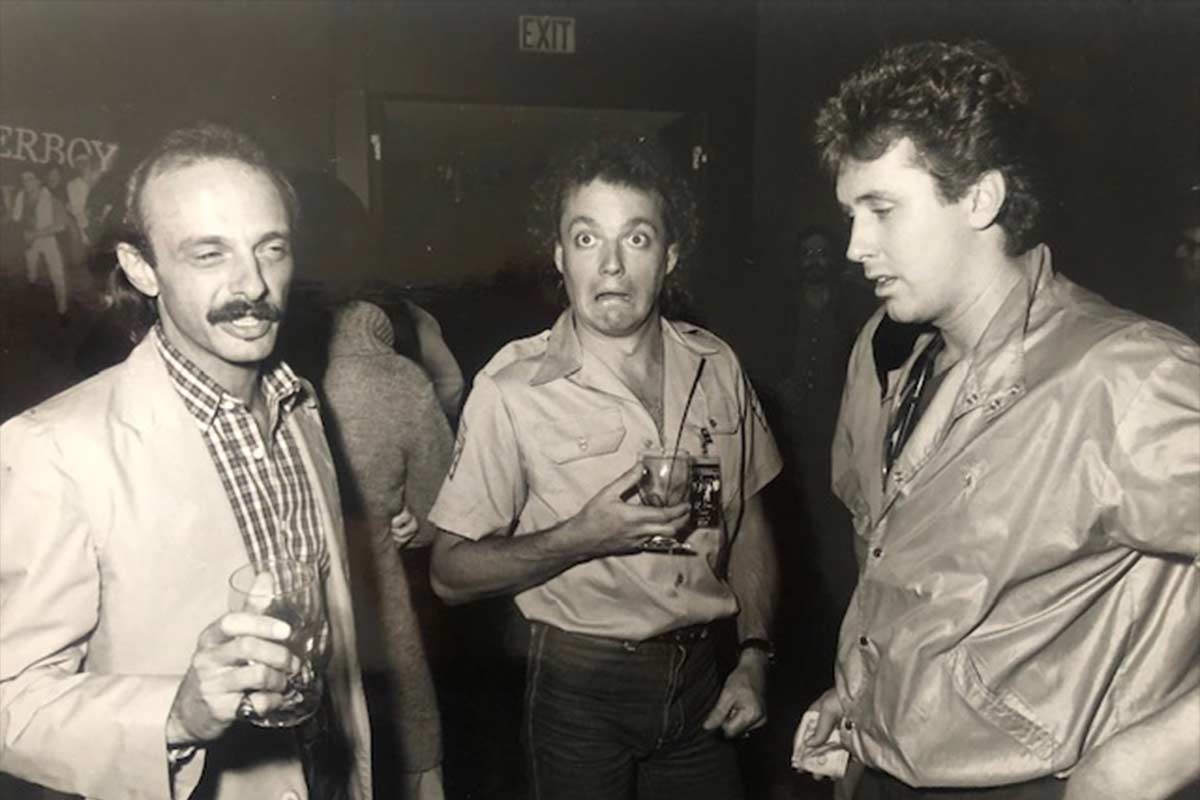
I always considered myself a good and loyal soldier for Columbia, but I also always tried to do the right thing for any band I worked with. I called Bruce Allen, “We’ve got a problem.”
The next day, I was called into Al Teller’s office, the President for Columbia at that time. He was about to get on a conference call with Bruce. He put the phone on speaker.
“Hi Bruce, what can I do for you?”
“You can start to fucking ship more Loverboy albums into the stores, that’s what!”
“Well, I know we’ve got a buzz going but my sales team aren’t quite convinced.”
“The record is becoming a big hit at rock radio and the guys are on the road playing to enthusiastic audiences. Didn’t Rap tell you what went on in St. Louis? This band is breaking, the demand is there. You want convincing? Here’s what’s gonna happen. If you don’t ship forty-thousand records into the stores immediately, I’m gonna trans-ship them in from Canada, and you’re going to look like a big asshole.”
If Bruce Allen was a tough guy, Al Teller was just as tough if not tougher. But Al was also very smart, and he had an incredible head for numbers. He did the right thing — he shipped the records, and at the most difficult time in the year to place new albums into stores. Those forty-thousand records were instantly gobbled up and by the end of the next year we’d sold over two million albums. Their follow-up album, Get Lucky featuring “Working for the Weekend,” sold over four million. The rest is history.
Loverboy – Working For the Weekend (Official Video)
Until next time — keep rockin’!
Rap~
© Paul Rappaport 2021
